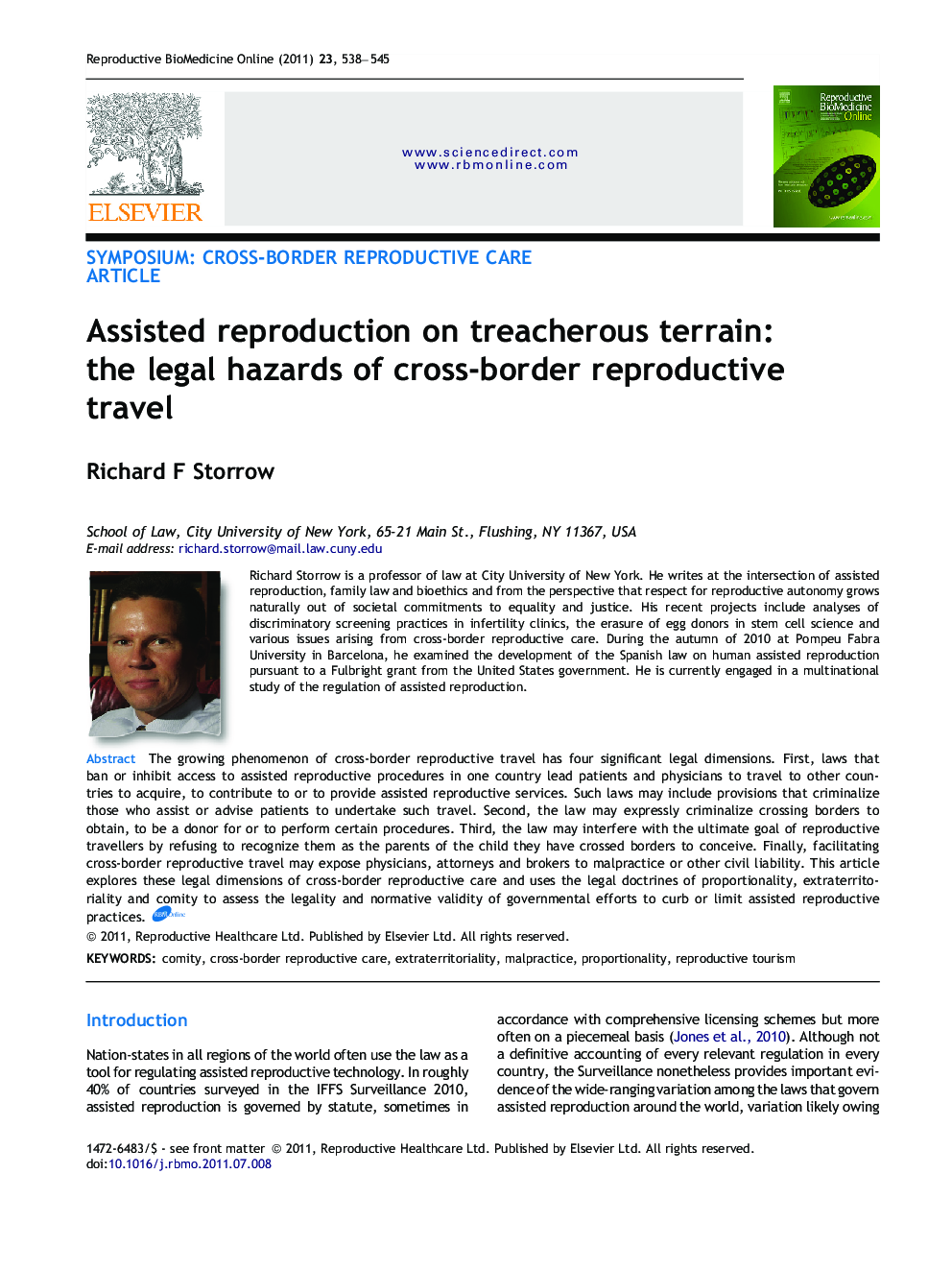| Article ID | Journal | Published Year | Pages | File Type |
|---|---|---|---|---|
| 3971328 | Reproductive BioMedicine Online | 2011 | 8 Pages |
The growing phenomenon of cross-border reproductive travel has four significant legal dimensions. First, laws that ban or inhibit access to assisted reproductive procedures in one country lead patients and physicians to travel to other countries to acquire, to contribute to or to provide assisted reproductive services. Such laws may include provisions that criminalize those who assist or advise patients to undertake such travel. Second, the law may expressly criminalize crossing borders to obtain, to be a donor for or to perform certain procedures. Third, the law may interfere with the ultimate goal of reproductive travellers by refusing to recognize them as the parents of the child they have crossed borders to conceive. Finally, facilitating cross-border reproductive travel may expose physicians, attorneys and brokers to malpractice or other civil liability. This article explores these legal dimensions of cross-border reproductive care and uses the legal doctrines of proportionality, extraterritoriality and comity to assess the legality and normative validity of governmental efforts to curb or limit assisted reproductive practices.This article explores the four significant legal dimensions of the growing phenomenon of cross-border reproductive travel. It first discusses laws that ban or inhibit access to assisted reproductive procedures to show how restrictive laws in one country often lead patients and physicians to travel to other countries to acquire, to contribute to, or to provide assisted reproductive services. Such laws may include provisions that criminalize those who assist or advise patients to undertake such travel. The article then explores how the law, albeit rarely, may expressly criminalize crossing borders to obtain, to be a donor for, or to perform certain procedures. Turning to the third dimension of cross-border reproductive care, this article shows how the law may interfere with the ultimate goal of reproductive travellers when they meet with refusal by their country’s officials to recognize them as the parents of the child they have crossed borders to conceive. Finally, this article describes how cross-border reproductive travel may expose physicians, attorneys and brokers to malpractice or other civil liability. After discussing all four legal dimensions of cross-border reproductive care, this article analyses the legality and normative validity of governmental efforts to curb or limit assisted reproductive practices.
